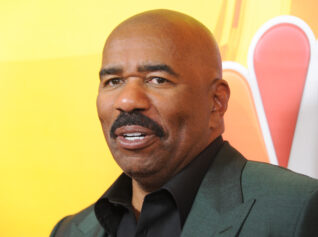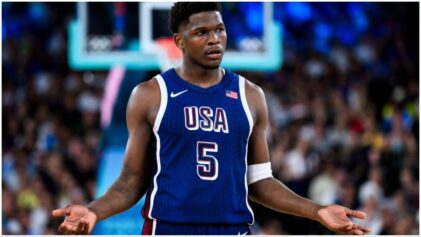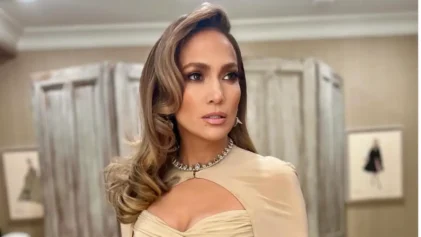WE, THE BLACK DELEGATION WOULD LIKE TO SELECT @MichaelRapaport IN THE 2018 #RaceDraft pic.twitter.com/hyPAabJ77k
— 🅱️. 𝕱𝖔𝖌𝖑𝖊🤟🏾 (@DJPSYKHO) November 7, 2017
The actor, director, podcaster and all around rabble-rouser Michael Rapaport recently called out those in the white community who love rap but hate black people. It’s something that he spoke about during a recent visit to CNN to promote his new book “This Book Has Balls.”
“It’s crazy how many people out here who love hip-hop but hate anything that has to do with actual black people, or they love these athletes but then are disgusted by their actions and their protests,” he said. “That to me is the craziest thing in the world. You would think that one hand would sort of move things forward. But you could love all these black things and then despise black people. That’s crazy to me.”
Throughout his career, Rapaport has often talked about growing up a hip-hop fan in New York City, and in 2011 he created the critically acclaimed documentary “Beats, Rhymes & Life: The Travels of A Tribe Called Quest.” He even named his son Maceo after De La Soul member Vincent “Maseo” Mason.
Some might say that Rapaport has become sort of a friend to the Black community since he’s often stood up for Black issues and received praise for it. Like when he blasted the white supremacists who marched in Charlottesville’s “Unite the Right” rally. Or when he ripped the White House press secretary Sarah Huckabee Sanders for saying ESPN host Jemele Hill should’ve been fired for criticizing Donald Trump.
On the other hand, Rapaport has gotten on the wrong side of some Black folks, like when he suggested that NFL players shouldn’t protest the national anthem on the games that fell on September 11.
“Anybody that kneels on 9/11 is getting Aielloe’d and possibly dropped from my fantasy football team,” he wrote. “Think it through, fellas. For real.”
Rapaport later said he was half-joking when he sent that tweet.
Related news: Hip-Hop, Nicki Minaj, Talib Kweli
Are Today’s Rap Fans Annoyed by Conscious Hip-Hop? Dead Prez’s Stic.man and Dee 1 Weigh In
Nicki Minaj Says Fashion Designers Appropriate Hip-Hop Culture and Exclude Black People
Talib Kweli Talks Rise of White Supremacy, Music and Donald Trump in Exclusive Interview
The 47-year-old also raised eyebrows when he got into it with Spike Lee on the issue of gentrification, particularly in Spike’s home borough of Brooklyn N.Y., where neighborhoods have drastically changed over the years. At the time, Rapaport disagreed with the veteran director that gentrification was all that bad.
“Spike lives on the Upper East Side,” he said on HuffPost Live. “Neighborhoods change. Life changes … People evolve. Things evolve. They get better. Those neighborhoods in Brooklyn, the majority of the neighborhoods that have been gentrified were abandoned.”
Spike then shot back.
“First of all, motherf—ing Rapaport doesn’t know what he’s talking about,” he stated. “What Michael Rapaport left out because he’s stupid, he’s not talking about the people who can no longer afford to live in Williamsburg, who can no longer afford to live in Fort Greene, who can no longer afford to live in Clinton Hill.”
As far as Rapaport’s opinion on some white folks loving hip-hop but not black people, others have addressed the topic, like Lord Jamar from the popular ‘80s group Brand Nubian.
Those familiar with Brand Nubian’s message and style of music, know they drew heavily from the teachings of the New York founded Five-Percent Nation. They also referred to white people as “devils” in songs like “Wake Up (Reprise In The Sunshine).”
During his interview, Jamar said that some of Brand Nubian’s shows were filled with white people, despite their pro-Black stance. He said the same thing about many of Public Enemy’s shows as well.
“But I don’t feel Chuck D (P.E.’s leader) equates his success by white acceptance,” he said. “And I think he’s smart enough to know that even though white people like his music and all that, they don’t truly accept him as a Black man. Where you have these other coons out here who f—ing believe just because they have a bunch of white fans, these white people really do f—ing accept them as some sort of equal.”


